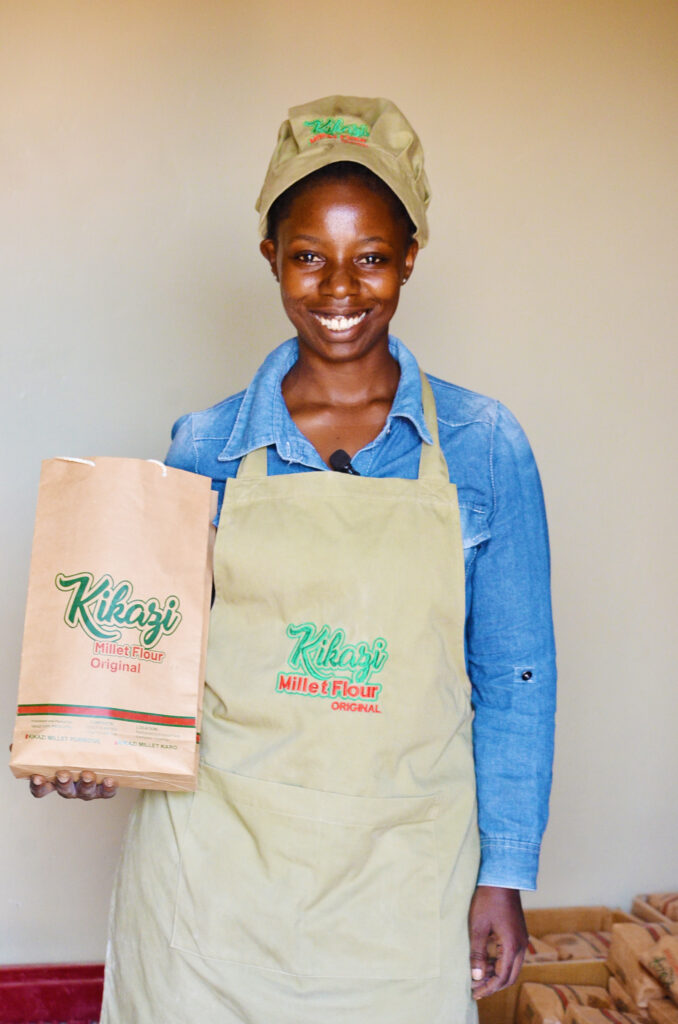By Jeff Andrew Lule
For a variety of reasons, many agribusinesses and other Small Medium Enterprises (SMEs) continue to struggle or perhaps fail quickly.
Economic analysts blame this on a variety of factors, including bad management, inadequate planning, lack of sufficient capital, and marketing expertise, as well as bad company locations.
But to address these gaps, the Agribusiness Development Centre (ADC), Rabo and DFCU Foundations collaborated to launch the Business Accelerator Program (BAP), to empower agribusinesses across the country by addressing the main production obstacles that stand in the way of their ability to turn a profit.
This involved establishing connections between various enterprises and financial institutions so they could readily obtain financial backing, bolstering their capacity.

The project aimed to connect 50% of 350 agribusinesses to markets and capital, assisting growth and create new jobs, with 40% of these businesses being women-run.
A wide range of business management issues were taught in the curriculum, such as governance, risk management, marketing, financial management, business canvas modeling, and meeting lender requirements.
The training was beneficial to more than 140 women-owned businesses during the project’s duration.
During the evaluation of some of the trainees’ advancement in the country’s central region and Bunyoro sub regions, Josephine Mukumbya, the executive director of ADC, recognized the challenge posed by the slow expansion of agribusiness firms and the necessity of providing them with assistance.
“It was heaven-sent that we found like-minded institutions that would like to follow our plan, to see agribusiness development happen. We were able to build the capacity of agribusiness enterprises and that they can be linked to interventions that can enable them to grow and create jobs, especially for youth and women,” he noted.
Additionally, the participants took part in exposure tours to several locations, including the Consortium for Improving University Responsiveness to Agribusiness Development (CURAD), the Uganda Industrial Research Institute (UIRI), and the Trans-African Summit.
Thanks to the training sessions, Grace Kikazi, a trainee with expertise in millet flour production from Kyaliwajjala in Wakiso, was able to register her company with the Uganda National Bureau of Standards (UNBS), secure a trademark, and establish her business.
She has managed to register with the Uganda Revenue Authority (URA) and successfully received a Tax Identification Number (TIN).
Kikazi is optimistic that she may quickly obtain money and gain access to the export market now that her business has been registered.
Because they lack collateral to give moneylenders and are unable to meet financing standards, agribusinesses and other small and medium-sized businesses in Uganda face a difficult time in securing low-cost loans.
According to experts, this has frequently led to company closures before the businesses are two years old.
In contrast to other businesses, agribusinesses also have to deal with the effects of climate change, which include extreme floods and long-lasting droughts that threaten agricultural productivity and lead to food insecurity.
The program also focused on helping newly established agribusinesses expand and become more scalable.
The initiative, which was supported by dfcu Bank, helped agribusinesses validate their business models, comprehend their strategic positioning, and manage growth for self-sufficiency and relevant linkages.
Robert Wanok, the Head of dfcu Bank’s Personal and Business Banking emphasized the bank’s commitment to catering to a wide-range clientele, which include small and medium-sized enterprises (SMEs) and female entrepreneurs.
“Our partnership with ADC is part of a joint mission to grow, build, and promote the prospect of a sustainable future,” he noted.
He underlined that Uganda’s future lies in agribusiness and that the partnership will effectively foster the industry’s expansion.
Another partnership between the Enhancing the Competitiveness of Small and Medium Enterprises in Uganda (ECOS) project and the BAP program was also implemented to deliberately transform the future of SMEs, supported by GIZ.
More than 200 new jobs were created, 250 women-owned businesses received training, and 120 enterprises were introduced to green finance.
The goal was to increase the competitiveness of women-owned businesses in Uganda.
A Local Subsidy and Partnership specialist working on the ECOS initiative, Charles Kilibo, claims that the program’s combined effects with ECOS and BAP have made a considerable impact.
“During our project implementation, we’ve encountered unforeseen challenges and opportunities. We’ve taken action in these unassigned areas, which turned out to be crucial. For instance, we provided training to SMEs in aquaculture, guiding them through the entire process, from pond design and site development to feed production and seed multiplication,” he added.
They also helped unregistered SMEs formalize their operations.
“We supported 100 SMEs in our database with training and business clinics, even helping some of them establish their business names. Our goal was to initiate their formalization journey,” he explained.
The themes during the project included key value chains, greening agribusinesses, exploring oil and gas opportunities, and youth engagement in agribusiness.
Enid Natukunda Mugisha, the managing director of Raw & Organic, from Kireka in the Wakiso area said she has not only built a prosperous business but also seen a notable transformation in her personal life, since embarking on her journey in 2019.
She told the New Vision in an interview that the BAP program gave her essential knowledge and practical insights on corporate governance, which allowed her to organize an advisory board and create a comprehensive business plan.
“We now know how to do a business plan. I had a shoddy business plan but they helped us to develop the new one we are using. We now even have a marketing plan,” she said.
The founder of Africa Haven, a renowned exporter of exotic and tropical fruits and vegetables based in Busega-Kampala, Susan Prima Akello, stated that her company is now well-positioned to more than quadruple its exports because the training enabled them to implement changes in administration, management, health, and safety.
Almost 70% of the work force in Uganda is employed in agriculture and related businesses, providing almost 25% of the country’s GDP.





